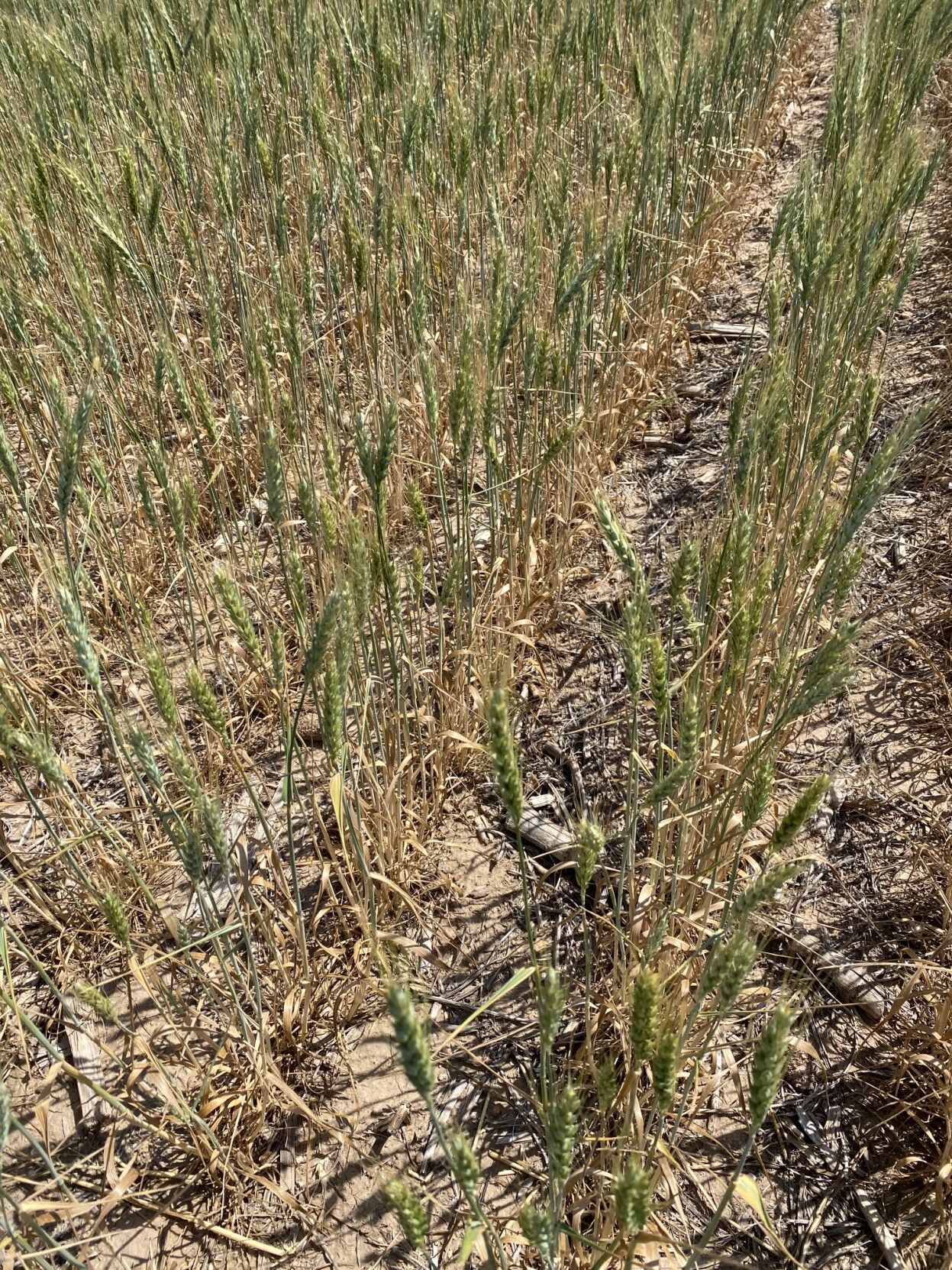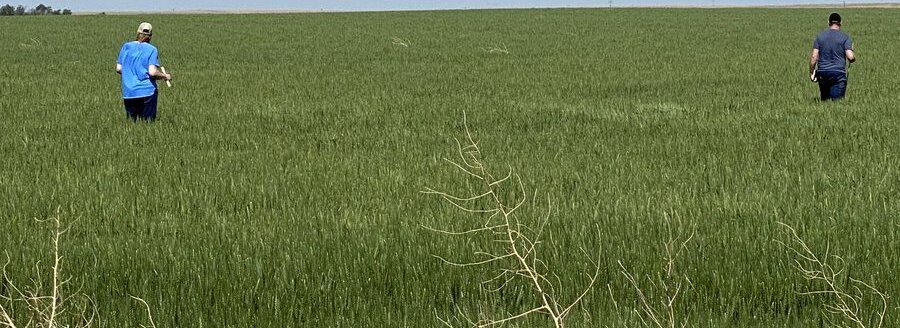After a disappointing first day on the north corridor route the second day, May 18, provided a glimpse of patches of better Kansas wheat.
As part of the Wheat Quality Council’s 64th annual Hard Winter Wheat Evaluation Tour, Aaron Harries, vice president of research and operations for Kansas Wheat, was part of the caravan that headed south of Colby to Garden City, then headed east to Larned and then angled south to Pratt before finishing up in Wichita.
The previous day showed much drought stress and the estimate in his caravan was 38 bushels per acre—about 10 bushels per acre lower when compared to 2021. This trek, the caravan pegged yields at 45 bushels per acre compared to 48 bushels a year ago.
Harries’ instincts put yields closer to 40 bushels per acre and several others who were scouting agreed with him.
“There was a lot of variability. It looked short on yields south of Colby,” Harries said.
However, the caravan did find a pocket of wheat north of Leoti in west central Kansas that looked promising. “There was some pretty good wheat because of a swath of snow that fell earlier in the year. Unfortunately that was a very narrow band.”
Farther south to the Garden City region the story returned to extensive drought stress that was highly visible, he said. Some places did receive rain earlier in the week, Harries said, adding while it put moisture on the top inch or two of the soil there was little subsoil moisture.
Wheat in Pratt County region also had suffered from drought stress, Harries said, adding he had hoped there might be pockets of good wheat but moisture eluded the area when the crop needed it. As his tour got closer to Wichita the quality of the wheat was dramatically improved.
“Overall, I don’t think it was quite as dismal as yesterday (on the northern route May 17). You could clearly see the first half of the growing season was drought stricken. There were places where the top of the head showed promise but it needed more water and did not get it.”
Drought stress was the theme of the two days and overwhelmed all other challenges growers faced.
“No disease pressure was found,” Harries said, then quipped. “They need rain, too.”
There are six routes to the tour, which concludes May 19 with a wrap-up in Manhattan.
Dave Bergmeier can be reached at 620-227-1822 or [email protected].




